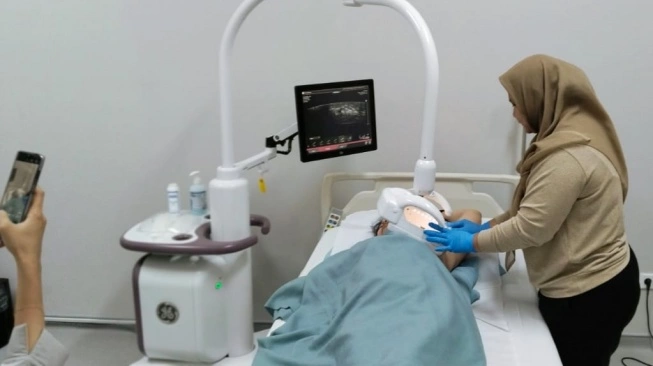Automated Breast Ultrasound System (ABUS) is an advanced imaging technology that enhances early detection of breast cancer, especially in women with dense breast tissue. Unlike traditional mammography, ABUS provides a comprehensive 3D view of the breast without using ionizing radiation, making it a safer option for many patients.
Advantages of ABUS:
- Enhanced Detection in Dense Breasts: Dense breast tissue can obscure tumors in mammograms. ABUS overcomes this by providing clearer images, increasing cancer detection rates.
- Radiation-Free Imaging: Utilizing ultrasound technology, ABUS eliminates exposure to ionizing radiation, offering a safer alternative for regular screenings.
- Comfort and Accessibility: The procedure is quick, non-invasive, and suitable for various patient groups, including younger women, pregnant individuals, and those with breast implants.
Implementation in Indonesia:
Recognizing the rising incidence of breast cancer, with over 66,000 new cases reported in 2022, healthcare providers in Indonesia are adopting ABUS to improve early detection rates. RS Ciputra Surabaya, in collaboration with GE Healthcare, has introduced ABUS to enhance diagnostic accuracy and patient comfort.
Dr. Desak Gede Agung Suprabawati, a Surgical Oncology Specialist, emphasizes that ABUS is particularly effective for women under 40, pregnant women, patients with implants, and those sensitive to radiation. She notes that while mammography remains the gold standard, its efficacy can be limited in dense breast tissue, making ABUS a valuable complementary tool.
Supporting this, Dr. Sidharta, a Radiology Specialist, highlights that ABUS can increase the detection rate of invasive breast cancers, especially those smaller than 10 mm, which might be missed by mammography alone.
Educational Initiatives:
Beyond technology implementation, RS Ciputra Surabaya and GE Healthcare are conducting educational programs to raise awareness about breast cancer and the importance of early detection. These initiatives include health talks, demonstrations of self-examination techniques, and hospital tours to familiarize the public with ABUS technology.
Conclusion:
The integration of ABUS in breast cancer screening represents a significant advancement in medical imaging, offering a safer and more effective method for early detection, particularly in women with dense breast tissue. As healthcare facilities in Indonesia adopt this technology, it is anticipated that breast cancer detection rates will improve, leading to earlier interventions and better patient outcomes.
Read More






 Thursday, 08-01-26
Thursday, 08-01-26







